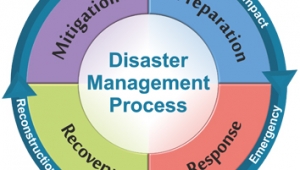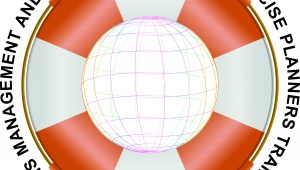-- 1.2 Non-kinetic functional area synchronisation
Desсription: Concept development for implementation of JALLC recommendations regarding non kinetic functional areas synchronisation (JALLC report to be expected NLT Sep 2017)
Dates: Jan - Dec 2018
Location:
Participants:
POCs: COL (OF-5) Plamen Milanovplamen.milanov@cmdrcoe.orgOffice: +359 2 92 24720
Support for the NATO Global Programming Approach to Training
read moreRS TE-1 is a combined RS HQ and TAAC level Staff and advisory training
RS TE-2 is RS HQ Staff level training combined with advisory functions for pre-deployed personnel
RS TE-3 is combined RS HQ and TAAC Staff level advisory training slated for pre-deployed personnel to Afghanistan
RS TE-4 is RS HQ Staff level traning combined with advisory functions slated for pre-deployed personnel to Afghanistan
read moreThe SMEs support the Direval providing daily comments and advices, based on the criteria of AFS Vol. IX Annex Q, how the staff of the JHQ is training. And, at the end of the phase, they provide a final report on their area of competence.
read moreSME and Knowledge Management Support
read moreDevelop FFT Paper to inform the development of the new SFA and FFAO.
read moreCOEs input to the development of the Minimum Capability Requirements (MCR) 2019 as it was done during the development of MCR16.
read moreSupport of the Capability Area Facilitator (WMDC) and Co-CAF (IMS NCAB) in the development, maintaining and implementation of the CBRN Capability Roadmap
read moreUnderstand corruption as a security risk , its impact on crisis management and better prepare forces to be deployed for operations.
read moreDevelop the capability to collaborate online on NATO priority projects
read moreDevelop the capability to provide efficient online and blended learning NATO wide.
read moreSupport activities related to new ACT Programme on Autonomy - Autonomous Systems, including Artificial Intelligence and Robotics
read moreSupport to JALLC in conducting JALLC Analysis Reports (ARs)
read moreAnalyse an issue of the specific area of expertise and provide an AR
read moreParticipate and support the annual NATO LL Conference as well as LL Workshops
read moreParticipate and support NMSG new task group related to CMDR COE operational requirements
read moreM&S Support for Crisis and Disaster Management Processes and Climate Change Implications
read moreDiscussing and developing of procedural approaches to current CMI-related challenges within NATO.
read moreTo coordinate all CMI and CIMIC related activities.
read moreDiscussing and developing of procedural approaches to current CMI-related challenges within NATO.
read moreCreating of Resource Library with material connected to Civil military events in the area of CMDR.
read moreDevelopment a project for Building Societal Resilience against Hybrid Threats
read moreParticipate and support the annual NATO LL Conference as well as LL Workshops
read moreA NATO-approved Concept that provides the overarching framework and guidance that leads to a NATO capability development in support of Stability Policing.
read moreParticipation of observers in a BRC training session with the voluntary flood action teams and sharing of best practices.
read moreCMDR COE together with the Nordic Centre for Gender in Military Operations (SWEDINT) to organise and conduct a Gender Train of Trainers course.
read moreDevelop and conduct a Crisis PR pilot course for the needs of the Ministry of Defense, the subordinate structures and the Bulgarian army.
read moreTraining on the NCRS/CRMs for the needs of the Ministry of Defense and the subordinate structures.
read moreTraining on the NCRS/CRMs for the needs of the Ministry of Defense and the subordinate structures.
read moreAdaptating of the national CMDR expertise to that of NATO.
read moreSharing of best practices and expertise in the field of CMDR.
read moreCMDR COE should to support the concept development and the planning process of the exercise.
read moreDeveloping and conducting training / cources in the subject.
read more1. Performing Military Training Requirements Analysis
2. Co-organizing workshop with MoD and NDC
read moreEstablishment of an Interagency Working Group to develop a draft for amendment of the law on the Crisis Management in Republic of Bulgaria.
read moreDevelop capabilities to act, without delay, in response to requests in case of complex emergencies resulting from natural and/or man-made disasters.
read moreThe exercise is designed to test the NAC procedures at the strategic political-military level. It involves civilian and military staffs in Allied capitals, at NATO HQs and in both ACO and ACT Commands.
read moreCMDR COE together with Human and Social Studies Foundation (HSSF) will organise a seminar on conducted research project by the HSSF monitoring the Bulgarian media and identifying the anti-liberal and anti-EU/NATO propaganda.
read more
The aim of the course is to introduce extensive overview of NATO structures and guiding principles and will arm the participants with appreciation of the Alliance Crisis Management approach.
read more
A course focused on acquisition of basic knowledge related to the disaster as phenomenon, the disaster management process and its close relation to the risk management process, as well as the main players and mechanisms in disaster response.
read more
Acquisition of comprehensive knowledge related to contribution to Crisis Response Operations planning across the NATO’s Crisis Management within the strategic level headquarters.
read more
The aim of this course is acquisition of knowledge that will help upgrading needed skills of exercise planners to incorporate CMDR in exercise planning.
read moreThis course will educate and train personnel to perform successfully as Gender Focal Point in Crisis management.
read moreThe third Module is co-organised in Sofia between 16 and 20 April 2018 by Bulgarian Diplomatic Institute (BDI), Georgi Rakovski Rakovski National Defense College and Crisis Management and Disaster Response Centre of Excellence (CMDR COE).
read moreThe third Module is co-organised in Sofia between 16 and 20 April 2018 by Bulgarian Diplomatic Institute (BDI), Georgi Rakovski Rakovski National Defense College and Crisis Management and Disaster Response Centre of Excellence (CMDR COE).
read more




